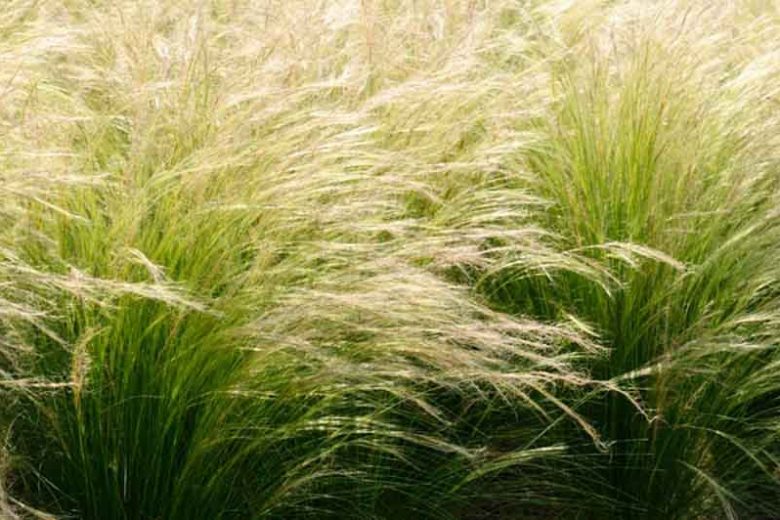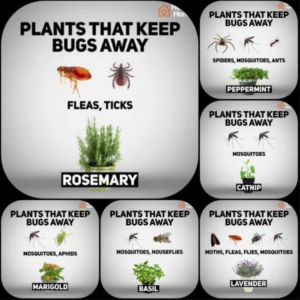Mexican Feather Grass: A Graceful Addition to Your Garden
With its delicate, feathery leaves and airy, swaying habit, Mexican feather grass (Nasella tenuissima) is a beautiful and versatile addition to any garden. It is drought-tolerant and low-maintenance, making it a great choice for busy gardeners or those with limited space. Mexican feather grass is also deer-resistant, so you can enjoy its beauty without worrying about hungry animals.
In this article, we will discuss the different varieties of Mexican feather grass, how to plant and care for it, and how to use it in your garden design. We will also provide tips on how to propagate Mexican feather grass so you can share this beautiful plant with your friends and family.

Mexican Feather Grass: A Graceful Addition to Your Garden
Mexican feather grass (Nasella tenuissima) is a beautiful, low-maintenance grass that is perfect for adding a touch of grace to your garden. It is native to Mexico and Central America, and it is now widely cultivated in other parts of the world.
Mexican feather grass grows to a height of about 2 feet, and it has long, thin leaves that are a light green color. The leaves are arranged in a feathery plume, which gives the plant its name.
Mexican feather grass is a very hardy plant, and it can tolerate a wide range of conditions. It can grow in full sun or partial shade, and it can tolerate drought and poor soil. Mexican feather grass is also deer resistant.
Mexican feather grass is a great choice for adding a touch of texture and interest to your garden. It can be used as a groundcover, or it can be planted in a container. Mexican feather grass is also a great choice for pollinator gardens, as it attracts bees and butterflies.
Here are some tips for growing Mexican feather grass:
- Plant Mexican feather grass in full sun or partial shade.
- The soil should be well-drained and fertile.
- Water Mexican feather grass regularly, especially during dry periods.
- Fertilize Mexican feather grass once a year in spring.
- Mexican feather grass can be propagated by division or by seed.
Mexican feather grass is a beautiful and low-maintenance grass that is perfect for adding a touch of grace to your garden.
The Graceful Beauty of Mexican Feather Grass
The Graceful Beauty of Mexican Feather Grass
Mexican feather grass (Nasella tenuissima) is a graceful, drought-tolerant grass that is perfect for adding a touch of elegance to your garden. It is native to Mexico and Central America, and it can be found growing in a variety of habitats, from dry prairies to tropical rainforests.
Mexican feather grass has long, thin leaves that are a beautiful shade of green. In the summer, it produces delicate, feathery plumes of flowers that add a touch of color to the garden.
Mexican feather grass is a low-maintenance plant that is easy to grow. It does not require much water, and it can tolerate a wide range of soil conditions. It is also resistant to pests and diseases.
Mexican feather grass is a great choice for adding a touch of elegance to your garden. It is a beautiful plant that is easy to grow and care for.
Benefits of Mexican Feather Grass
- Drought-tolerant
- Low-maintenance
- Resistant to pests and diseases
- Adds a touch of elegance to the garden
- A variety of cultivars are available, each with its own unique characteristics
How to Grow Mexican Feather Grass
Mexican feather grass is easy to grow from seed or by division. Seeds can be started indoors in the spring or directly sown in the garden in the fall. Divisions can be taken in the spring or fall.
Mexican feather grass prefers full sun, but it can tolerate partial shade. It does best in well-drained soil, but it can tolerate a wide range of soil conditions.
Mexican feather grass does not require much water. Water it deeply once or twice a week during the summer months, and less frequently during the winter months.
Mexican feather grass is a relatively pest-free plant. However, it can be susceptible to aphids and mites. If you notice any pests, you can treat them with a horticultural oil or insecticidal soap.
Uses for Mexican Feather Grass
Mexican feather grass is a versatile plant that can be used in a variety of ways in the garden. It can be used as a ground cover, as an accent plant, or in a mixed border. It can also be used in containers or as a cut flower.
Mexican feather grass is a beautiful and versatile plant that is perfect for adding a touch of elegance to your garden.
How to Grow Mexican Feather Grass in Your Garden
How to Grow Mexican Feather Grass in Your Garden
Mexican feather grass (Nasella tenuissima) is a beautiful, low-maintenance grass that is perfect for adding a touch of elegance to your garden.
Mexican feather grass is a warm-season grass, so it is best to plant it in spring or early summer. It can tolerate a wide range of soil conditions, but it prefers well-drained soil. Mexican feather grass is drought-tolerant, but it will benefit from regular watering during dry periods.It is native to Central America and Mexico, and it is now widely grown in other parts of the world..
Growing Mexican Feather Grass
To grow Mexican feather grass, you will need:
- Seeds or seedlings
- Soil
- Water
- Sunlight
- Prepare the soil. Mexican feather grass prefers well-drained soil, so it is important to amend the soil with compost or sand if it is too clayey.
- Plant the seeds or seedlings. Mexican feather grass can be planted in the spring or early summer. Sow the seeds 1 inch (2.5 cm) deep and 1 foot (30 cm) apart. Space seedlings 2 feet (60 cm) apart.
- Water the plants. Water the plants regularly, especially during dry periods.
- Provide sunlight. Mexican feather grass needs full sun to partial shade.
Caring for Mexican Feather Grass
Mexican feather grass is a low-maintenance grass that is easy to care for. Once it is established, it will only need occasional watering and fertilizing.
- Watering. Water the plants regularly, especially during dry periods. Water deeply so that the water reaches the roots.
- Fertilizing. Fertilize the plants once a year in the spring with a slow-release fertilizer.
- Pruning. Mexican feather grass does not require much pruning. You can trim the grass back in the spring to remove any dead or damaged leaves.
Harvesting Mexican Feather Grass
Mexican feather grass can be harvested for its ornamental value. The grass can be used in flower arrangements or dried for use in wreaths or other crafts. To harvest the grass, cut the stems off at the base of the plant. The grass can be dried by hanging it upside down in a cool, dry place.
Pests and Diseases
Mexican feather grass is generally resistant to pests and diseases. However, it can be affected by aphids, mites, and leaf spot. If you notice any pests or diseases on your plants, you can treat them with a neem oil or insecticidal soap spray.
Mexican feather grass is a beautiful, low-maintenance grass that is perfect for adding a touch of elegance to your garden. It is easy to grow and care for, and it can be harvested for its ornamental value.
Caring for Mexican Feather Grass
# Caring for Mexican Feather Grass
Mexican feather grass (Nasella tenuissima) is a beautiful, low-maintenance grass that is perfect for adding a touch of elegance to your garden. It is drought-tolerant and requires little water, making it a great choice for gardeners in dry climates. Mexican feather grass also does not require much fertilizer, so it is a budget-friendly option.
To care for Mexican feather grass, simply follow these steps:
- Water regularly. Mexican feather grass does not require a lot of water, but it will need to be watered regularly during dry periods. Water the grass deeply once or twice a week, making sure to soak the roots.
- Fertilize sparingly. Mexican feather grass does not need much fertilizer, so it is important to fertilize it sparingly. Fertilize the grass once in the spring and once in the fall, using a fertilizer that is low in nitrogen.
- Prune as needed. Mexican feather grass does not require much pruning, but it may need to be trimmed back occasionally to keep it looking its best. Trim the grass back in the spring, removing any dead or damaged leaves.
By following these simple steps, you can easily care for Mexican feather grass and enjoy its beauty for years to come.
Table of Contents
- Watering Mexican Feather Grass
- Fertilizing Mexican Feather Grass
- Pruning Mexican Feather Grass
Using Mexican Feather Grass in Your Landscape Design
Using Mexican Feather Grass in Your Landscape Design
Mexican feather grass (Nasella tenuissima) is a versatile grass that can add a touch of elegance to any landscape. It is drought-tolerant and low-maintenance, making it a great choice for busy gardeners. Mexican feather grass comes in a variety of cultivars, each with its own unique characteristics. Some cultivars are taller than others, while others have a wider spread. Some cultivars have green leaves, while others have variegated leaves.
No matter what your needs are, there is sure to be a Mexican feather grass cultivar that is perfect for you. Here are a few tips for using Mexican feather grass in your landscape design:
- Use Mexican feather grass as a groundcover. Mexican feather grass is a great choice for groundcover because it is low-maintenance and spreads quickly. It can be used to fill in bare spots in your garden or to create a lush, green carpet.
- Use Mexican feather grass as an accent plant. Mexican feather grass can also be used as an accent plant to add a touch of interest to your garden. It can be planted in a container, in a rock garden, or at the edge of a bed.
- Use Mexican feather grass in a mixed border. Mexican feather grass can be combined with other plants to create a beautiful and diverse border. It can be used to soften the edges of a bed, to add height, or to provide a contrast of texture and color.
Mexican feather grass is a versatile and beautiful grass that can add a touch of elegance to any landscape. With so many cultivars to choose from, you are sure to find the perfect one for your garden.
Table of Mexican Feather Grass Cultivars
| Cultivar | Height | Spread | Leaves | Color |
|---|---|---|---|---|
| ‘Elijah’ | 2-3 feet | 2-3 feet | Green | Green |
| ‘Frosted Explosion’ | 2-3 feet | 2-3 feet | Green and white | White |
| ‘Golden Feather’ | 2-3 feet | 2-3 feet | Green and yellow | Yellow |
| ‘Mohawk’ | 4-5 feet | 2-3 feet | Green | Green |
| ‘Ponytails’ | 2-3 feet | 2-3 feet | Green and brown | Brown |
Mexican feather grass is a beautiful and graceful addition to any garden. It is a low-maintenance plant that is drought-tolerant and easy to grow. Here are a few tips for adding Mexican feather grass to your garden:
- Choose the right location. Mexican feather grass prefers full sun, but it can tolerate partial shade. It does best in well-drained soil.
- Plant Mexican feather grass in early spring or fall. Dig a hole that is twice the width of the root ball. Add a little compost to the soil and mix it in well. Place the root ball in the hole and fill it in with soil. Water the plant thoroughly.
- Water Mexican feather grass regularly during the first few weeks after planting. Once the plant is established, it can tolerate drought.
- Fertilize Mexican feather grass in early spring and again in late summer. Use a slow-release fertilizer that is specifically formulated for grasses.
- Prune Mexican feather grass in late winter or early spring. Cut back the old foliage to about 6 inches tall. This will encourage new growth.
Mexican feather grass is a beautiful and versatile plant that can add a touch of elegance to any garden. It is a great choice for beginners and experienced gardeners alike.
Table of Contents
- What is Mexican Feather Grass?
- How to Grow Mexican Feather Grass
- Benefits of Growing Mexican Feather Grass
- Problems with Growing Mexican Feather Grass
- How to Care for Mexican Feather Grass
- Propagation of Mexican Feather Grass
- Uses for Mexican Feather Grass
FAQ
Q: What is Mexican feather grass?
A: Mexican feather grass (Nasella tenuissima) is a type of grass native to Mexico and Central America. It is a perennial plant that grows to be about 2 feet tall. The leaves are long and thin, and the flowers are small and white. Mexican feather grass is a popular ornamental plant because of its graceful appearance. It is also drought-tolerant and easy to care for.
Q: What are the benefits of adding Mexican feather grass to my garden?
A: There are many benefits to adding Mexican feather grass to your garden. Here are a few:
- It is a beautiful plant that adds a touch of elegance to any garden. The long, graceful leaves and delicate flowers make Mexican feather grass a stunning addition to any landscape.
- It is drought-tolerant and easy to care for. Mexican feather grass does not require a lot of water, making it a great choice for gardens in dry climates. It is also resistant to pests and diseases, so you don’t have to worry about it being damaged by insects or diseases.
- It is a good choice for attracting wildlife. Mexican feather grass provides food and shelter for a variety of birds, butterflies, and other insects.
Q: How do I plant Mexican feather grass?
A: Planting Mexican feather grass is easy. Here are the steps:
- Choose a location in your garden that receives full sun or partial shade.
- Dig a hole that is about twice the width of the root ball.
- Place the root ball in the hole and fill it with soil.
- Water the plant thoroughly.
Q: How do I care for Mexican feather grass?
A: Mexican feather grass is a low-maintenance plant that requires little care. Here are a few tips:
- Water the plant regularly, especially during dry spells.
- Fertilize the plant once a year in the spring.
- Deadhead the flowers to encourage new growth.
- Divide the plant every few years to keep it healthy.
Q: What are some common problems with Mexican feather grass?
A: There are a few common problems that can affect Mexican feather grass. Here are a few:
- Weevils: Weevils can damage the leaves of Mexican feather grass. To control weevils, spray the plants with a neem oil solution.
- Rust: Rust can cause the leaves of Mexican feather grass to turn brown. To control rust, spray the plants with a fungicide.
- Powdery mildew: Powdery mildew can cause the leaves of Mexican feather grass to become covered in a white powder. To control powdery mildew, spray the plants with a fungicide.
Q: How can I propagate Mexican feather grass?
A: Mexican feather grass can be propagated by division. To divide the plant, dig up the clump of grass and carefully separate the roots into two or more sections. Replant the sections in new holes.
Q: Where can I buy Mexican feather grass?
A: Mexican feather grass is available at most garden centers and online retailers.
Wrapping Up
Mexican feather grass: A graceful addition to your garden
With its delicate, feathery leaves and airy, swaying habit, Mexican feather grass is a beautiful addition to any garden. It’s also relatively easy to care for, making it a good choice for gardeners of all levels.
Here are a few tips for growing Mexican feather grass in your garden:
- Choose a location with full sun or partial shade.
- The soil should be well-drained and rich in organic matter.
- Water regularly, especially during dry spells.
- Fertilize once a year in spring.
- Divide the clumps every few years to keep them healthy.
Mexican feather grass is a beautiful and versatile plant that can be used in a variety of ways in the garden. It can be planted in borders, as a groundcover, or in containers. It’s also a great choice for adding movement and interest to a garden.
So if you’re looking for a graceful and easy-care addition to your garden, consider Mexican feather grass. You won’t be disappointed.
- Cat Palm vs Majesty Palm: Which Should You Choose? - June 30, 2024
- Flowers That Survive Winter: Discover the Exceptional No. 5 - June 30, 2024
- The Ultimate Guide to the Growth and Care of the Black Pagoda Lipstick Plant - June 29, 2024





